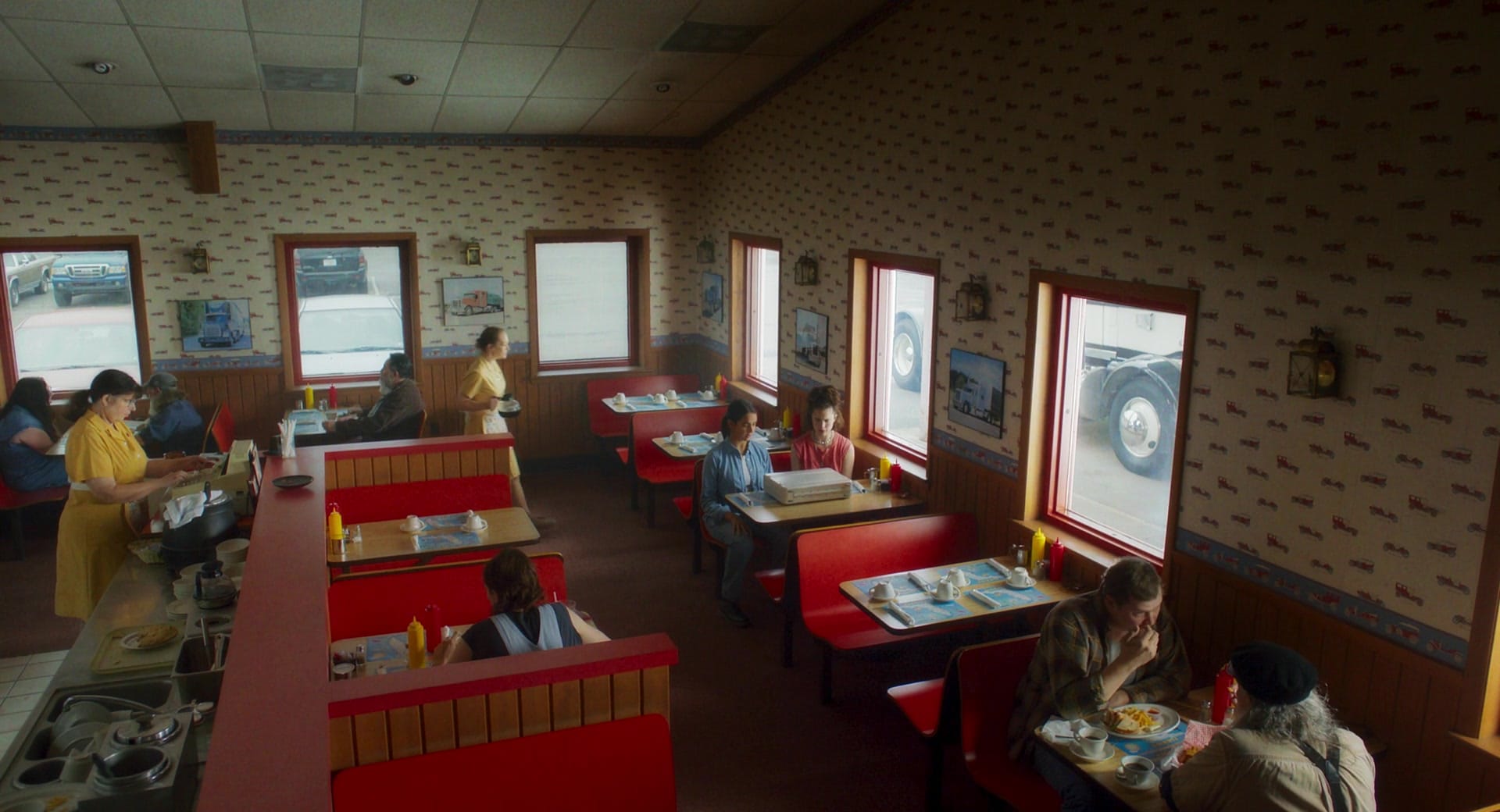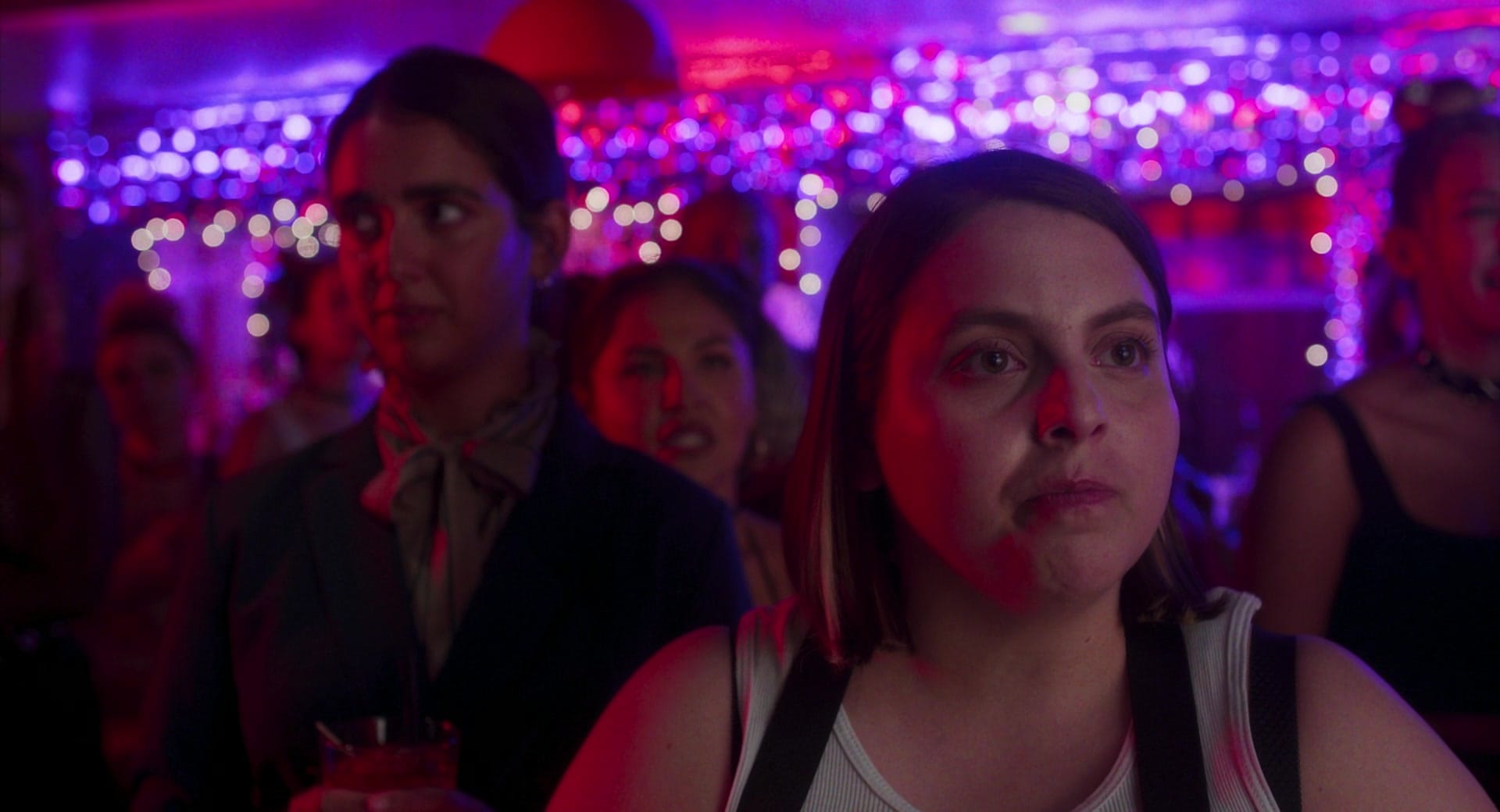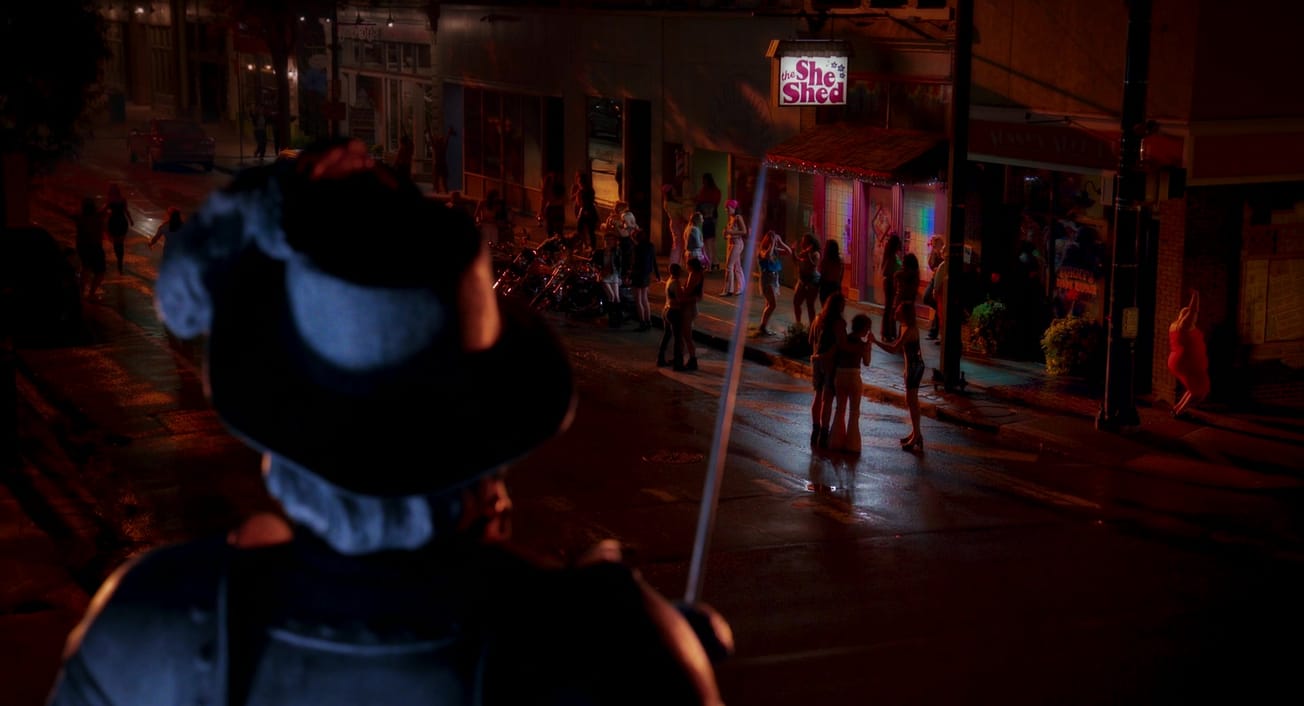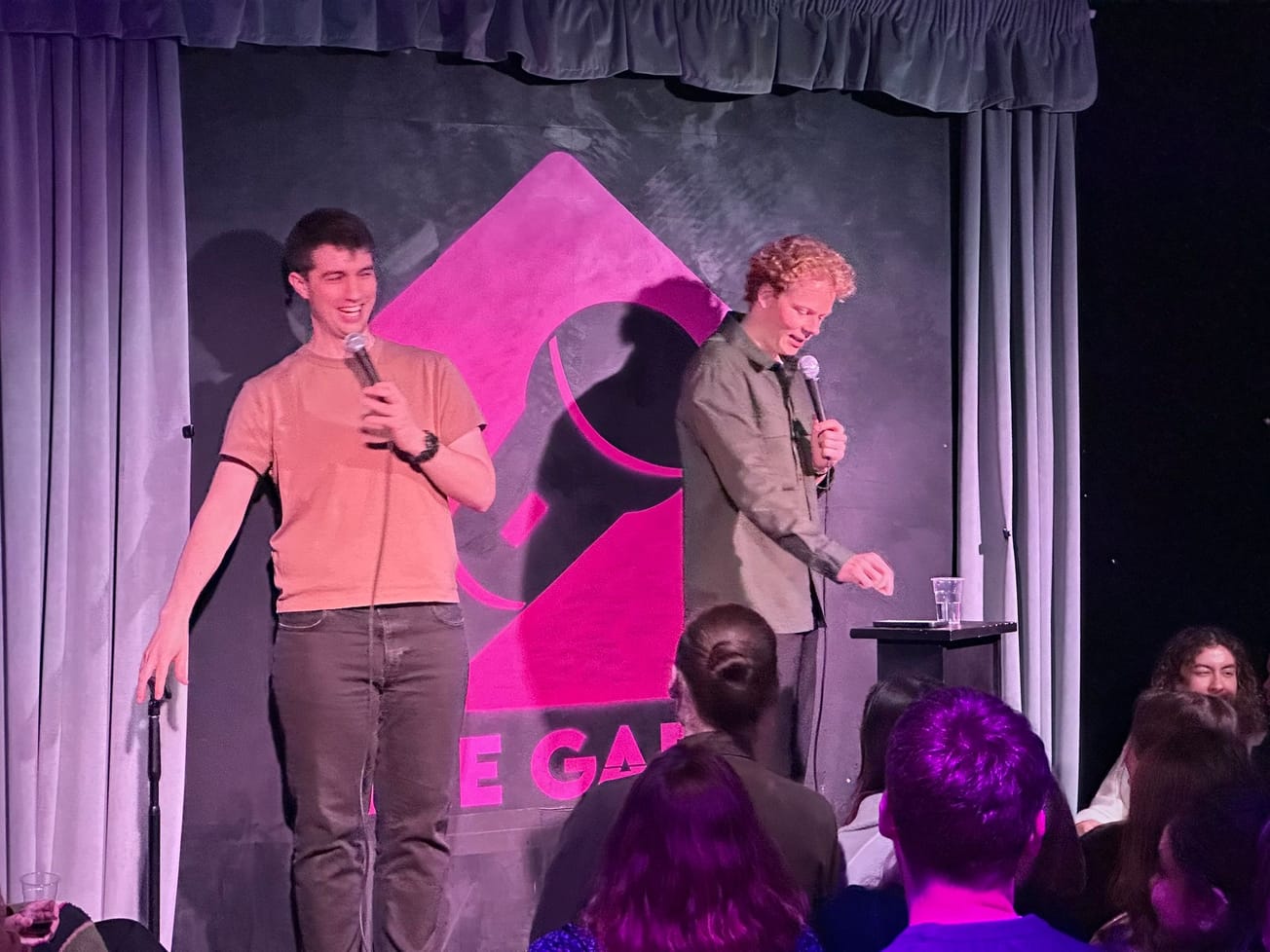By Anna Luna Biddle, Third Year, Politics and International Relations.
Following a breakup because of her infidelity, Jamie (Margaret Qualley) decides to hit the road with her friend Marian (Geraldine Viswanathan) on a trip to Tallahassee, Florida, in a drive away car. A mix-up leads to the duo embarking on their journey with more than a couple of questionable, and highly sought after, goods in their car boot, putting two criminals on their tracks as they obliviously pursue a trail of motels and lesbian bars in 1999 East Coast U.S.

We are introduced to Jamie's character as she emerges from between two thighs, setting the scene for her ostentatious, chatty, and unapologetically prurient personage. Qualley's performance is perfect, her engagingly bold lines delivered swiftly in her comical southern accent. Her masculine frame poised at doorways feels like a flirtation with the audience. Alongside, Viswanathan excels by speaking less but doing so more with her blunt execution and concerned facial expressions, balancing Jamie out with a dramatic aptitude that positions her as a promising new face for Hollywood. Beanie Feldstein, as usual, is no disappointment, hilariously playing her Butch police officer character, Sukie, whose memorability comes from a scene of her screw-driving a dildo off the wall in heartbroken despair.
Drive Away Dolls is a sapphic reincarnation of Tarantino's filmography. This is immediately apparent in the comedy of the violence throughout, displaying caricatured killings and reactions that attain absurdity. Additionally, the array of familiar faces in the casting, such as Pedro Pascal and Matt Damon, and their spontaneous appearances, is worthy of Once Upon a Time in Hollywood (2019), which Qualley also appeared in.

The epitome of the film's mayhem manifests itself in the editing. The narrative is sporadically interrupted by animation sequences of colours and random entities, ranging from a pizza to a sensual Miley Cyrus cameo. Moreover, the cuts take the form of Looney-Toones-style transitions, cartoonesque in their exaggerated movement and jolting sound-effects. It is unclear what the purpose of these visual elements are, the kaleidoscopic, sometimes minutes-long segments serving no narrative function. They feel like what was intended to be an artistic and unique contribution, but came off as an annoying abeyance to the plot. Too psychedelic for the 'Y not Y2K' setting of the film, they belonged more in Fear and Loathing in Las Vegas' (1998) 70s road comedy.
The female majority who lead Drive Away Dolls, as illustrated in Marian's interrogation 'Can the reference be a woman? We don't know a lot of men', are charismatic, and their dialogue perfectly entertaining. However, this does not save the film from feeling slightly pointless and overpoweringly ludicrous. This psychotropic lesbian joyride falls short of any meaning, leaving the viewer with a feeling of unfinished business, waiting beyond the credits for a twist that never comes. Visually, the neon blue of the gay bars and the aesthetic of motels and cars succeeded, but the editing falls short of anything revolutionary, instead making the viewing experience jarring and interrupting the already empty narrative trajectory with pointless graphics sequences. As the movie begins, we expect a car ride that may be more than just a physical journey. We are instead left with a mildly entertaining, colourful yet unmemorable, vehicular failure.
What did you think of Drive Away Dolls?








